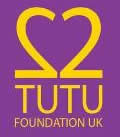|
|
|
Filling in the blank pagesOctober is Black History Month, but students and officers could be forgiven for wondering how that fits in with their union work and with their union priorities of fighting the lifting of the cap, making their union democracy work better and making commercial services relevant to their members. Ruqayyah Collector, NUS Black Students’ Officer, explains how..... Well, it fits in very nicely. The month exists to highlight and celebrate Black contributions to British society and is an ideal chance for the union to get more involved with Black members and non-members. Some people may wonder why anyone needs a Black History Month, but the reality is that Black history is often a hidden history, and one that has been written out of mainstream British history. More accurately, it was never written in — for most people, school histories of the UK were strictly all-white affairs. Filling in these blank pages does a number of things. It helps to illustrate the positive contribution Black people have made to society as a whole. Clearly that’s good for everyone to understand, but it also helps build confidence in the Black community and provide positive role models for our Black students. Black history also combats myths about Black people in the UK — for instance, that ‘they’ only started arriving after WWII. Such inaccuracies and generalisations are bread and butter for the far right. For NUS, Black History Month is an awareness exercise — one that helps to destroy the arguments of the British National Party (BNP) and its ilk.
Black people have always been at the forefront of human development, but too often we have been ignored. It is a time to reflect on the achievements and remember the good and the great who have challenged the norm and struggled to make the world a better place. If we want an inclusive society, then we need an inclusive history. Awareness of all our histories breaks down barriers and leads to co-operation on all sides and progress for all. |








